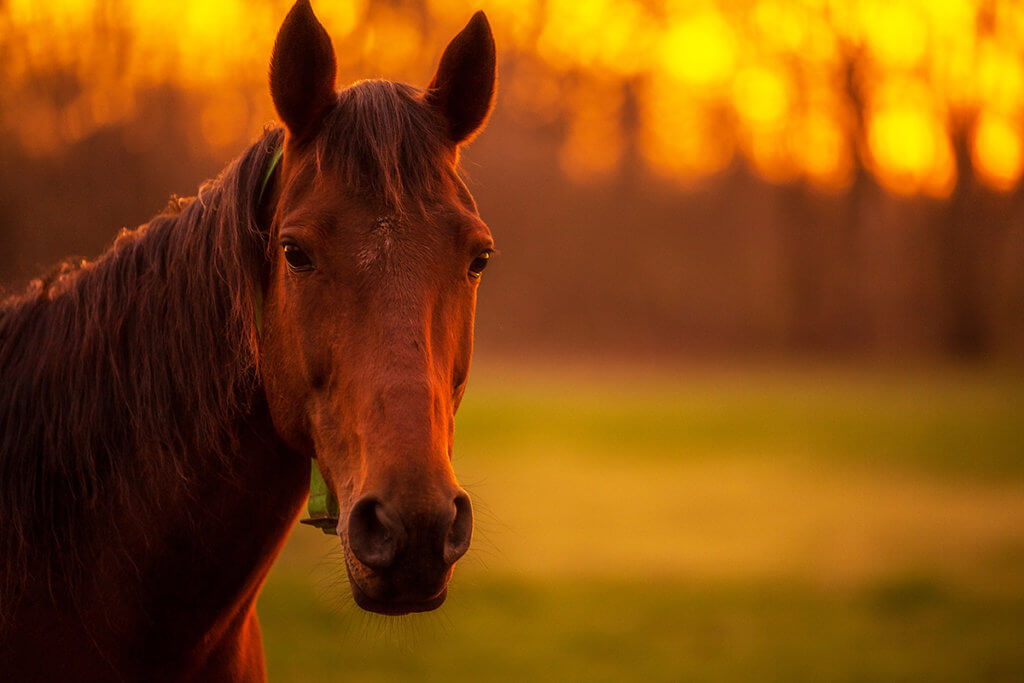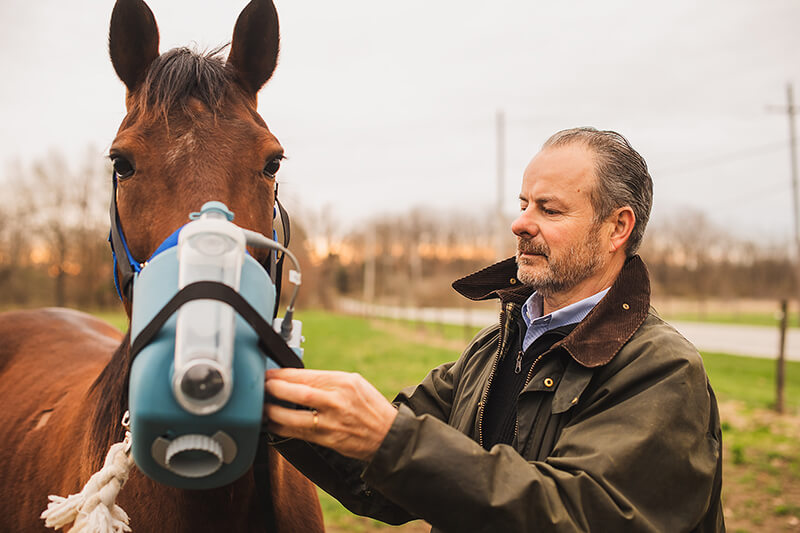
Just as many humans start to sneeze in the fall, horses also can experience seasonal allergy symptoms. Those symptoms can include coughing, but Dr. Laurent Couëtil, professor of large animal internal medicine in the Purdue University College of Veterinary Medicine, says sometimes the only sign is that their performance suffers.
Dr. Couëtil also serves as director of the Equine Sports Medicine Center. He has spent much of his career treating and researching equine respiratory disease, and he collaborated with three other researchers to argue for the adoption of equine asthma as an official diagnosis in the Equine Veterinary Journal. Equine asthma can flare up as a result of allergies, especially during the fall, and this year, that’s the season when many races traditionally held in the spring are being run, due to pandemic-influenced schedule changes.
Dr. Couëtil’s research shows that the causes of equine asthma are largely environmental. “We tend to see an increase in horses showing signs of equine asthma during crop harvest season,” he said. “Horses pastured near fields where crops are harvested may be exposed to the dust generated by the combine harvesting crops.” Horses affected by these allergies may develop signs like coughing or increased breathing efforts within a few days of exposure to the dust or allergens and may show impaired performance.

“Other horses with asthma tend to show signs when pollen and molds peak again in the fall,” Dr. Couëtil added. “So, the triggers may be different, but horses will show similar symptoms.”
One reason for so many allergy and asthma flare-ups in the fall has to do with feeding. As grass becomes sparse toward the end of the summer or early fall and horses are supplemented with dry hay, more susceptible horses may develop asthma flare-ups.
“Most asthmatic horses are allergic to hay dust,” Dr. Couëtil said, “And, therefore, they usually develop clinical signs when fed hay in the barn during the winter months.” Additionally, feeding round bales is associated with more severe signs because horses are exposed to higher dust levels compared with eating from square bales. “This is especially true when round bales are left in the field uncovered as they tend to become moldy from exposure to rain and moisture.”
Dr. Couëtil has found that often, less severe asthma symptoms improve when horses are on grass pasture, but during the fall months, this isn’t always possible. Feeding low-dust forages can help horses recover and also prevent flare-ups. “Our recent research demonstrated that athletic horses, such as racehorses, benefit from being fed steamed hay or haylage instead of dry hay,” Dr. Couëtil said. “These forages result in lower exposure to dust as compared to dry hay, and this translates in lower levels of airway inflammation. Haylage appears to have the strongest beneficial effect, and this effect seems to be linked to higher omega-3 fatty acid content.”
Additional supplementation with nutrients rich in omega-3 fatty acids, like EPA and DHA found in fish oil and algae, can help keep asthmatic horses healthy. Avoiding exposure to allergy triggers, such as by feeding low-dust forages, can help horses stay healthy and perform at peak levels. During crop harvest season, this might mean keeping the horse in the barn while crops around the stable are harvested.
“If horses continue to show signs of asthma despite environmental management, your veterinarian may prescribe treatment with aerosolized corticosteroids,” Dr. Couëtil said. Taking preventive measures can help minimize horses’ exposure to allergens and prevent asthma flare-ups, keeping horses healthy and performing at their best levels.
Dr. Couëtil’s research is supported by the Grayson Jockey-Club Research Foundation, the state of Indiana, and the Purdue Veterinary Medicine research fund.
